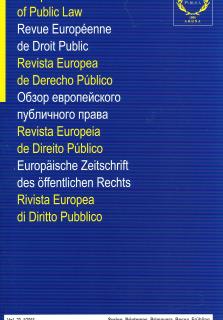
The Concepts and Methods of Reasoning
of the New Public Law
A New Legislation?
In the context of rulemaking by transnational bodies, this report explores the concept of legitimacy in the literature of law and political science. The European Union, the most institutionally developed form of transnational governance, with lawmaking structures in place that can be characterised as ‘legislative’, is throughout taken as paradigm. Section 2 discusses the view that legitimacy is largely a ‘new’ concept in public law and that lawyers tend to bypass questions of legitimacy with resort to better-known doctrines of sovereignty, primacy, human rights and the rule of law. Section 3 deals with consent, delegation and the ‘output legitimacy’ of efficiency and expertise, as the basis for legitimating the activities of transnational institutions. Section 4 turns to democracy, representative and popular, arguably the most potent legitimating device in modern times. Section 5 treats the case of the judiciary, responsible for formulating general principle and human rights standards but increasingly operating in a multiplicity of complex and overlapping jurisdictions. The report concludes that the many challenges for legal theorists and practitioners stemming from the rapid growth of norm-producing international bodies are more likely to be resolved by the application of ideas of legal pluralism than through the concept of legitimacy, central to political science but likely to remain peripheral to law.





















